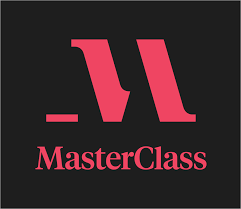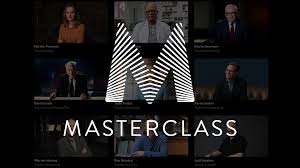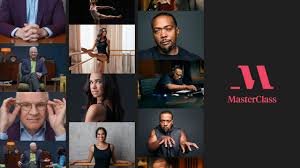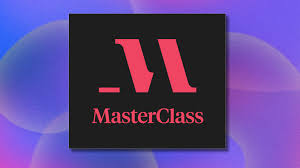Introduction: A Revolution in Online Learning

In a world where digital learning is growing rapidly, MasterClass has carved a unique space for itself by offering a premium, celebrity-led educational experience. Whether you’re an aspiring writer, an ambitious chef, a curious entrepreneur, or a music lover—MasterClass connects you directly with the masters of their craft. From Gordon Ramsay teaching cooking to Malcolm Gladwell dissecting writing techniques, MasterClass provides an intimate, high-production-value journey into the minds of the best in the business.
This blog explores the MasterClass platform in depth: its history, format, standout instructors, value proposition, and why it’s become a favorite for lifelong learners across the globe.
Chapter 1: What Is MasterClass?
Launched in 2015, MasterClass is an online education subscription platform that offers pre-recorded courses taught by experts, often celebrities, who are leaders in their respective industries. Each class is designed to feel like a cinematic experience—combining world-class production with intimate storytelling and practical insights.
Key Features
- Celebrity instructors: Learn from globally recognized experts and stars.
- High-quality video content: Courses shot in cinematic 4K resolution.
- Multi-lesson format: Each course has 10–25 video lessons.
- Workbooks and class guides: PDF resources included.
- Community access: Engage with a global learning community.
- Mobile and desktop access: Learn anytime, anywhere.

Chapter 2: The Unique Selling Point – Learn from Legends
The key differentiator of MasterClass is who teaches. These aren’t just well-qualified instructors—they’re some of the most iconic names in the world.
Notable Instructors
1. Gordon Ramsay – Cooking
With two comprehensive classes, the Michelin-starred chef teaches everything from knife skills to restaurant-style recipes.
2. Margaret Atwood – Creative Writing
The Booker Prize-winning author offers insight into storytelling, character development, and literary success.
3. Serena Williams – Tennis
Get an exclusive look at how a tennis legend trains, thinks, and wins.
4. Neil Gaiman – The Art of Storytelling
The famed fantasy author walks learners through his process, imagination, and character creation.
5. Howard Schultz – Business Leadership
The former Starbucks CEO shares principles on scaling businesses, purpose-driven leadership, and brand culture.
6. Annie Leibovitz – Photography
An insider view into how one of the world’s most celebrated photographers conceptualizes a shoot.
7. James Cameron – Filmmaking
The Oscar-winning director takes you behind the scenes of Titanic, Avatar, and more.
Each instructor is more than a teacher—they’re an icon. The goal is not just to learn technical skills but to absorb mindset, philosophy, and personal journey.
Chapter 3: How Classes Work – Format & Structure
Every MasterClass is structured for binge-watching yet optimized for learning. Most courses consist of:
- 20 video lessons (average length: 10–20 minutes)
- Downloadable workbook to reinforce key points
- Office Hours (in some courses) where you can ask questions
- Class community for discussions and peer feedback
Production Value
MasterClass videos feel like documentaries—shot with cinematic lighting, crisp audio, and engaging visuals. The production budget per class is notably high, often exceeding $100,000.
Accessibility
Videos can be streamed or downloaded via mobile apps (iOS and Android), and all classes come with English subtitles and closed captions. Many also have Spanish, German, or French subtitles.

Chapter 4: The MasterClass Subscription Model – Is It Worth It?
Pricing
MasterClass operates on a subscription-based model:
- Individual Plan: $120/year – One device at a time
- Duo Plan: $180/year – Two devices, offline access
- Family Plan: $240/year – Up to six devices simultaneously
There’s no pay-per-class option. While some might see this as a limitation, the “all-access” model encourages users to explore disciplines outside their comfort zones.
Value for Money
With over 180+ courses and more added every month, the platform provides excellent ROI for those who utilize it regularly. Think of it as the Netflix of learning—but with life-changing content.
Is it better than Skillshare or Coursera?
- Skillshare is great for practical skills and beginner content.
- Coursera/Udemy focus more on academic/professional certifications.
- MasterClass is about inspiration + high-level insight, ideal for creatives and professionals seeking edge or mentorship.
Chapter 5: Popular Course Categories
1. Writing
Instructors: Neil Gaiman, Margaret Atwood, James Patterson, Dan Brown
Topics: Storytelling, plot, nonfiction, screenwriting
2. Cooking
Instructors: Gordon Ramsay, Thomas Keller, Alice Waters
Topics: Home cooking, gourmet cuisine, baking
3. Film & TV
Instructors: Martin Scorsese, Shonda Rhimes, David Lynch
Topics: Directing, screenwriting, production design
4. Music
Instructors: Herbie Hancock, Alicia Keys, Timbaland
Topics: Songwriting, performance, producing
5. Business
Instructors: Bob Iger, Sara Blakely, Howard Schultz
Topics: Leadership, branding, entrepreneurship
6. Science & Tech
Instructors: Bill Nye, Chris Hadfield, Neil deGrasse Tyson
Topics: Scientific thinking, space, innovation

Chapter 6: Pros and Cons of MasterClass
Pros
- Unparalleled access to global icons
- High-quality video experience
- Diverse content library
- No pressure learning – learn at your own pace
- Inspiration at its best – great for creative blocks
Cons
- No certification – not ideal for career-focused learners
- Limited interactivity – mostly one-way learning
- Relatively expensive for casual learners
Chapter 7: Who Should Use MasterClass?
MasterClass isn’t for everyone, but it’s ideal for:
- Creative professionals seeking inspiration
- Aspiring writers, filmmakers, and chefs
- Entrepreneurs looking for leadership guidance
- Lifelong learners who value high production and storytelling
- Fans of celebrities who want an inside look into their heroes’ thought processes
If you’re the type who prefers absorbing mindset, philosophy, and lived experience over technical lectures, MasterClass is your goldmine.
Chapter 8: Tips to Make the Most of MasterClass
- Treat it like a podcast: Watch/listen while commuting or walking.
- Take notes: Use the PDF workbook alongside the video.
- Binge a category: Focus on all writing or music classes for deep immersion.
- Join community discussions: Engage and network.
- Re-watch: Some of the wisdom only clicks the second or third time.
Chapter 9: Corporate and Educational Use
MasterClass now offers MasterClass at Work—a solution for businesses and institutions to offer team-based learning. Organizations like Salesforce, Google, and Delta have used it for:
- Leadership training
- Creative thinking workshops
- Mental wellness & motivation
For schools, it’s a powerful supplementary tool to inspire students beyond the curriculum.
Chapter 10: MasterClass vs The Competition
| Platform | Strengths | Weaknesses |
|---|---|---|
| MasterClass | Celebrity instruction, quality | No certificates, expensive |
| Skillshare | Affordable, wide topics | Lower production quality |
| Coursera | Academic depth, certificates | Less creative content |
| Udemy | Cheap, vast selection | Variable quality |
| LinkedIn Learning | Career-oriented, certificates | Limited creativity |
Chapter 11: The Future of MasterClass
With AI tools, interactive media, and global internet penetration improving, the next phase of MasterClass might include:
- Interactive quizzes and projects
- AI-powered feedback
- Live Q&A with instructors
- Localized content in regional languages
- AR/VR learning modules
Imagine learning painting from Jeff Koons in a virtual studio or attending a simulated concert with Alicia Keys. The future is promising.
Conclusion: Is MasterClass Worth It?
If you’re looking to level up your thinking, creativity, and inspiration—MasterClass delivers. It’s less about tests and certification, more about mastery, mindset, and mentorship. With stunning visuals, star-studded instruction, and a growing library of over 180+ courses, MasterClass is more than an online education platform—it’s a movement redefining how we learn.
